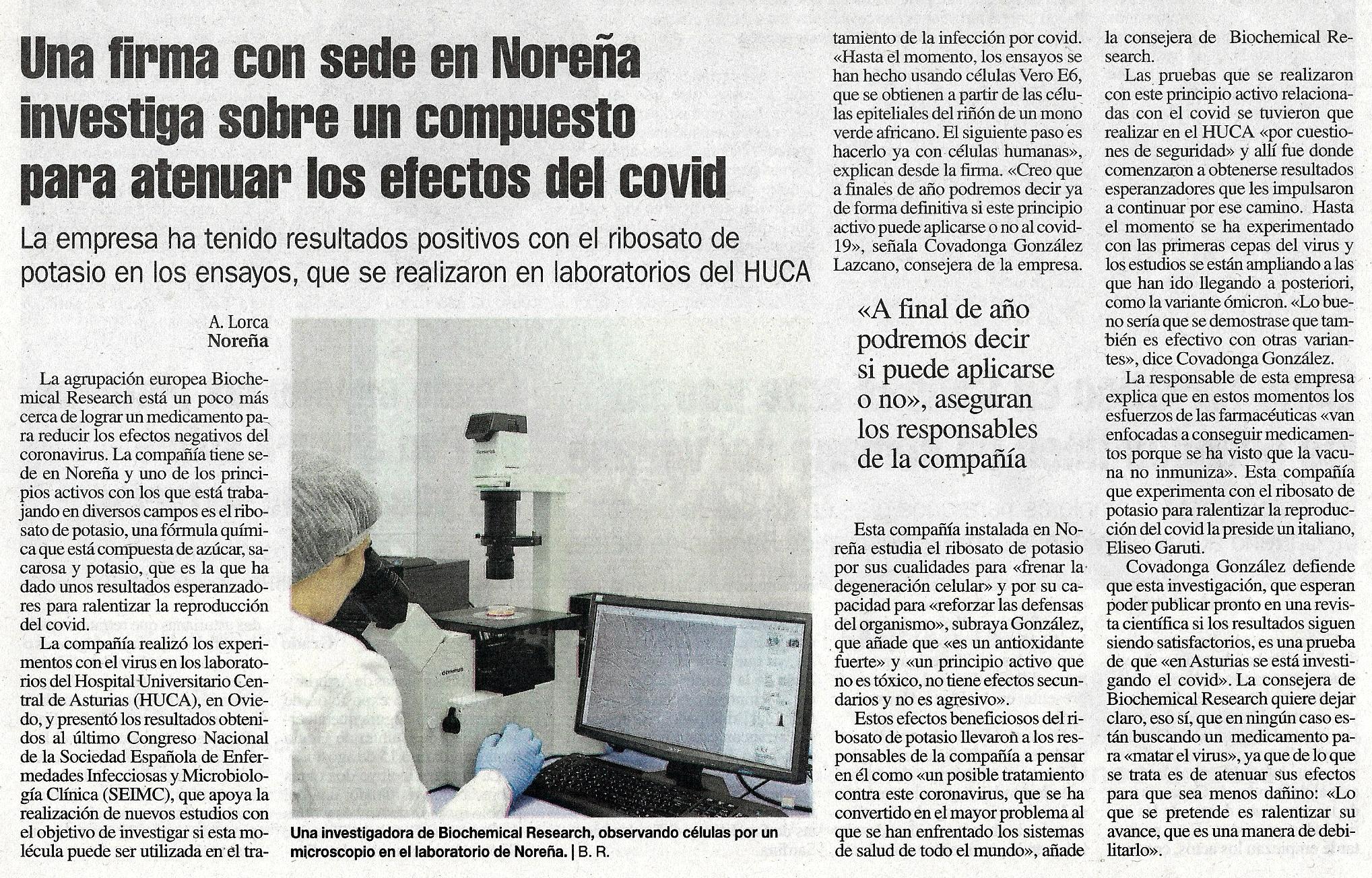Participation in the XXV National Congress of the Spanish Society of Infectious Diseases and Clinical Microbiology (SEIMC).
PRESS RELEASE :
The organisation Biochemical Research A.E.I.E. and the HUCA virology laboratory open the way to new antiviral treatments.
The European grouping Biochemical Research A.E.I.E. is an Asturian structure dedicated mainly to R+D+i in the bio-health field, constituted in 2001 and which aspires to be a leader in the sector by applying the most varied technology, extending its activity to pharmaceutical production with innovative formulations and thus promoting biotechnological development in the region.
Among its products under study is the Potassium Ribosate molecule, researched in close collaboration with the Valsé Pantellini Foundation (Asturias). This active ingredient has the capacity to be a strong antioxidant, while at the same time regulating cell metabolism. It is even capable of “slowing down” the risk of cell degeneration and “correcting” altered information at the level of the immune system.
In the current epidemiological situation resulting from the SARS-CoV-2 pandemic, it is necessary to have different strategies for the correct management of patients. In the search for such strategies is the search for appropriate treatments. The beneficial effects of Potassium Ribosate led Biochemical Research members to consider its potential as a treatment for this Coronavirus, which has become the biggest problem faced by health systems around the world.
Targeting viral replication.
The first step in this research is to study the compound’s ability to stop viral replication in vitro. To do so, they contacted members of the Virology laboratory of the HUCA Microbiology Service responsible for the diagnosis, quantification and characterisation of SARS-CoV-2 variants in clinical samples by genomic detection using PCR-based techniques.
They jointly developed a protocol using Vero E6 cells, a cell line commonly used in virology laboratories and in which different viruses replicate. These cell lines were infected with different strains of SARS-CoV-2 and treated with potassium ribosate. After a few days, the cytopathic effect was observed, i.e. morphological changes observable only in those infected cells, and the quantification of the virus (viral load) present in the infected cells treated or not with the molecule to be tested was carried out. The results showed that Potassium Ribosate was able to inhibit replication in more than half of the strains tested and in more than one third with viral load reductions of more than 100-fold.
This promising result, which was recently presented at the last National Congress of the Spanish Society of Infectious Diseases and Clinical Microbiology (SEIMC), supports further studies to investigate the possibility of using this molecule or derivatives in the treatment of SARS-CoV-2 infection, increasing the meagre arsenal available to date for the management of patients infected by this virus.
News extracted from the newspaper of New Spain on 21-07-2022 (Author A.Lorca).

